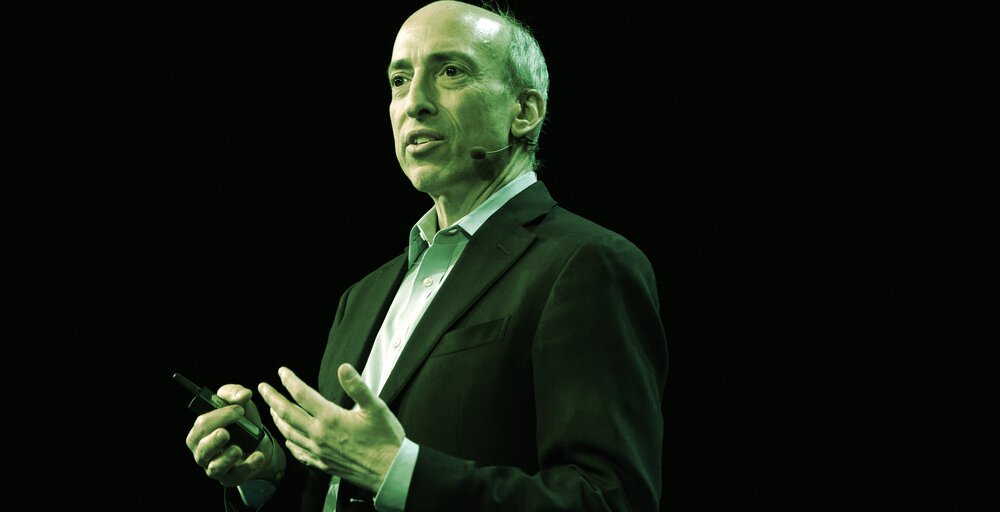Securities and Exchange Commission chair Gary Gensler leveled sharp criticism at cryptocurrency exchanges and stablecoins during an interview on Tuesday.
Gensler took issue with the fact that many of the largest cryptocurrency exchanges run custody, market-making, and trading services without keeping them separate the way traditional exchanges are required to.
“Crypto’s got a lot of those challenges—of platforms trading ahead of their customers,” Gensler told Bloomberg. “In fact, they’re trading against their customers often because they’re market-marking against their customers.”
Hours after the interview, Coinbase (COIN) was fighting to dispel fears that new risk factor language in its quarterly report with the SEC meant customers’ assets could be subject to bankruptcy proceedings.
The filing said, in part: “Crypto assets we hold in custody on behalf of our customers could be subject to bankruptcy proceedings.”
“We believe our Prime and Custody customers have strong legal protections in their terms of service that protect their assets, even in a black swan event like this,” Coinbase CEO Brian Armstrong said in a Twitter thread on Tuesday night.
Coinbase’s Prime and Custody services cater to institutional clients. He added that the company would take steps to “offer the same protections” to retail customers.
Gensler also took aim at stablecoins, pointing out that the three largest are all controlled by or have ties to crypto exchanges.
Tether (USDT), the largest stablecoin with a $83 billion market cap, has ties to Bitfinex, according to leaked documents. USD Coin (USDC), which has a $49 billion market cap, is controlled by the Centre consortium, which includes publicly traded Coinbase (COIN). And it should be no surprise that Binance USD (BUSD), which has a market cap of $17 billion, is associated with Binance.
“I don’t think that’s a coincidence,” Gensler said during the interview. “Each one of the three big ones were founded by trading platforms to facilitate trading on those platforms and potentially avoid AML and KYC.”
Altogether, the three stablecoins on Wednesday still accounted for roughly 10% of the $1.4 trillion global crypto market cap.
The best of Decrypt straight to your inbox.
Get the top stories curated daily, weekly roundups & deep dives straight to your inbox.

